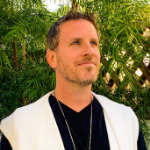
Spirituality
Yom Kippur – the Day of Atonement
Yom Kippur – the Day of Atonement
Dedicated to my dear brother Royi Geller
Today, Sep 24th (2023), we honor the Jewish day of Atonement, a Jewish holiday which comes to remind us to ask for forgiveness. According to tradition, it is a day of fasting and an invitation to meditate and observe what essentially is our karmic debts. To whom we owe forgiveness and in what ways we have acted out of integrity. Often, on this day, we feel the urge to reach out to friends and family and ask for their forgiveness. In the Jewish faith, it is said that God, on this day, decides the fate of our soul, and thus, it is recommended to “come clean.”
Yom Kippur is considered a holiday, not in the sense of a happy celebratory party-like occurrence, but if we study the Hebrew meaning of the word holiday, it is “Hag,” which comes from the word “Hoog,” which means to rotate. A day which repeats every single year as an opportunity to pay attention. To bring our awareness to a specific inner pattern of behavior.
There are two kinds of sins we atone for on this day. “Bein Adam Lechavero” – between us and others, and “Bein Adam Lamakom” – sins between us and “the place,” which in Hebrew is another name for God. However, Makom literally means place. Which to me means - our “place,” or Mother Earth. Our world, as we know it, is changing. Life, as it has been, is transforming before our very own eyes. It is plain to see that there is definitely much that Mother Earth would need to forgive us for...
If we utilize the energy of Yom Kippur in the proper way, we’ll see that there is much inner work needed for our world to keep “rotating.” To keep evolving, changing, and growing. This day is a reminder to care deeply for our relationship between us and our surroundings. Between us and the children of Mother Earth.
Atonement or making amends is not a superficial thing. It is not enough to send messages of forgiveness to our brothers and sisters. Forgiveness comes as an inner state of transformation. An understanding that we wish to be a part of the solution and not a cause for further despair. A Rabbi once told me – “Forgiveness cannot change your past, but it is guaranteed to change your future.” As you forgive, you change. As you ask for forgiveness, you are transformed. Forgiveness is not something to be taken lightly. It should be an expression of a truly changed heart. When you confess your “sins,” the actions you took out of integrity and out of selfish misery, you forgive yourself for coming out of your center. Whether you’ll be forgiven by others or not is not the central point. Forgiveness is an act of remorse, an energy that pushes to choose better. To start anew and come back to our Divine center.
Yom Kippur follows Rosh Hashana, the Jewish New Year, exactly as a continuation of the process of forgiveness. If you offer forgiveness, you are giving others a new opportunity to be different. Let the past be in the past and offer them a new opportunity to share a different future. When you ask for forgiveness, do so with a lot of awareness and care. Don’t let your words be empty of action. Mean what you say and offer those words first as a commitment to your own inner transformation.
The blessing we offer in Rosh Hashana (the Jewish New Year) is – “Shnihiye Lerosh ve lo le zanav.” – may we be a head and not a tail. Often interpreted as a calling for leadership, but the esoteric meaning behind this blessing can be translated in this way – May I be first to offer forgiveness, may I be first to change and teach by example.
And so, let us all take this opportunity to sit quietly and look within, what karmic debts did I create this past year? What inner changes I am called to bring forth? And more than ever before, how can we all, in this coming new year, offer our forgiveness to Mother Earth and change so profoundly that our actions will reflect a new horizon and a new hope for generations to come.
May we all have a profound Yom Kippur and a Happy New Year!
